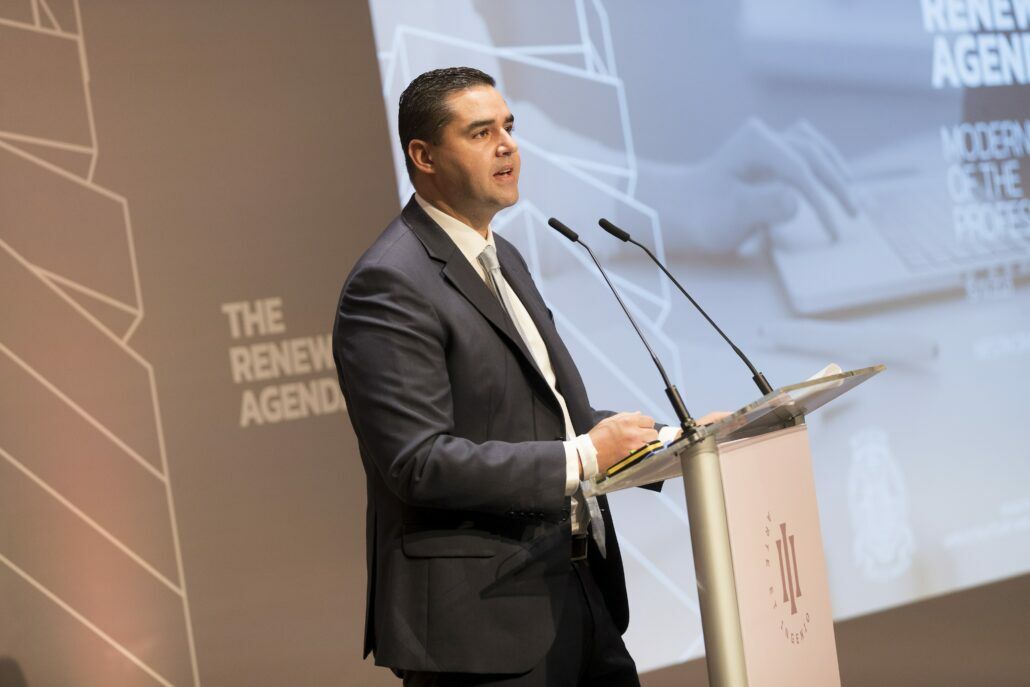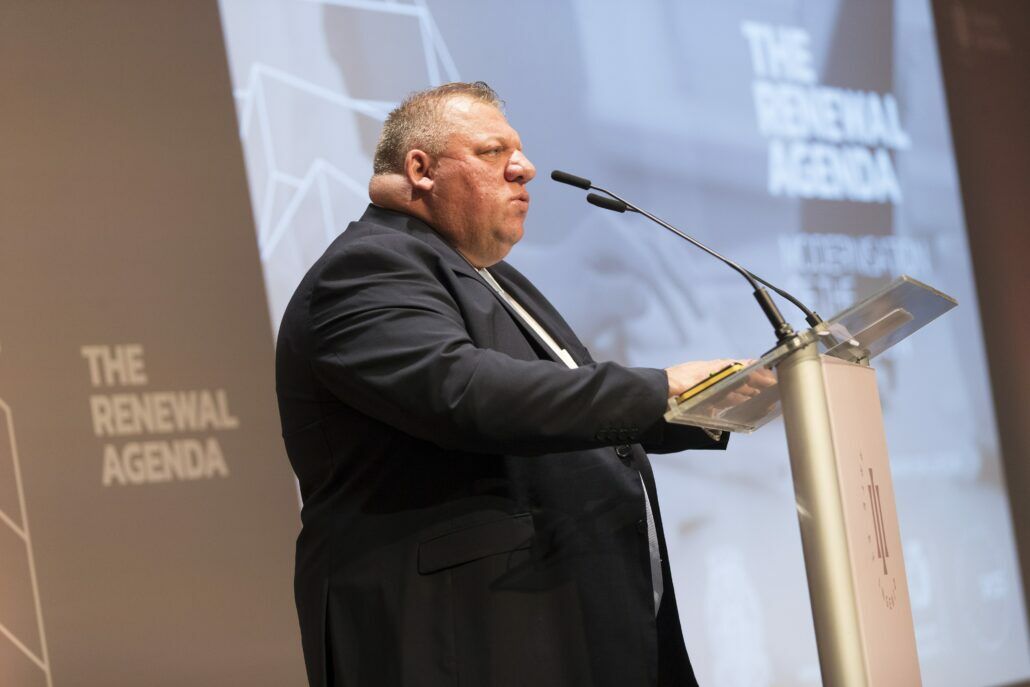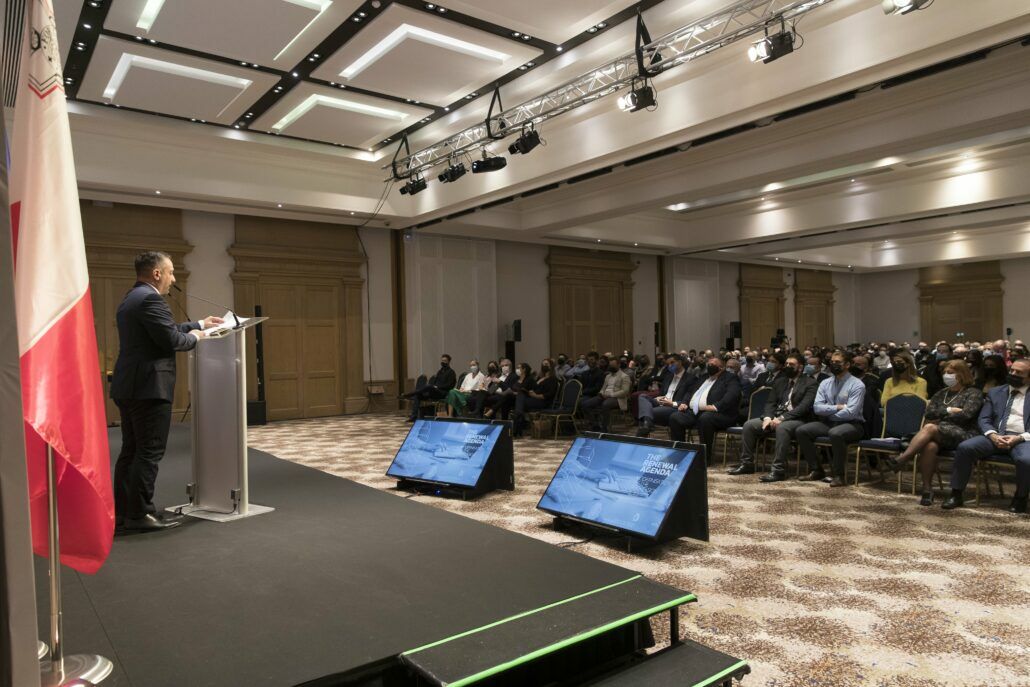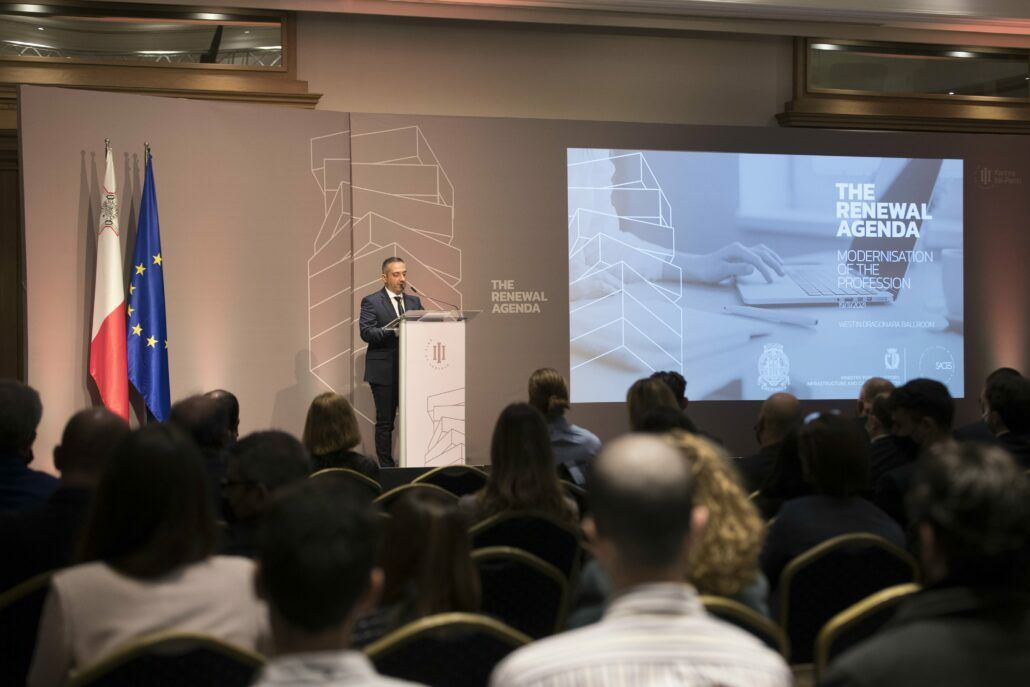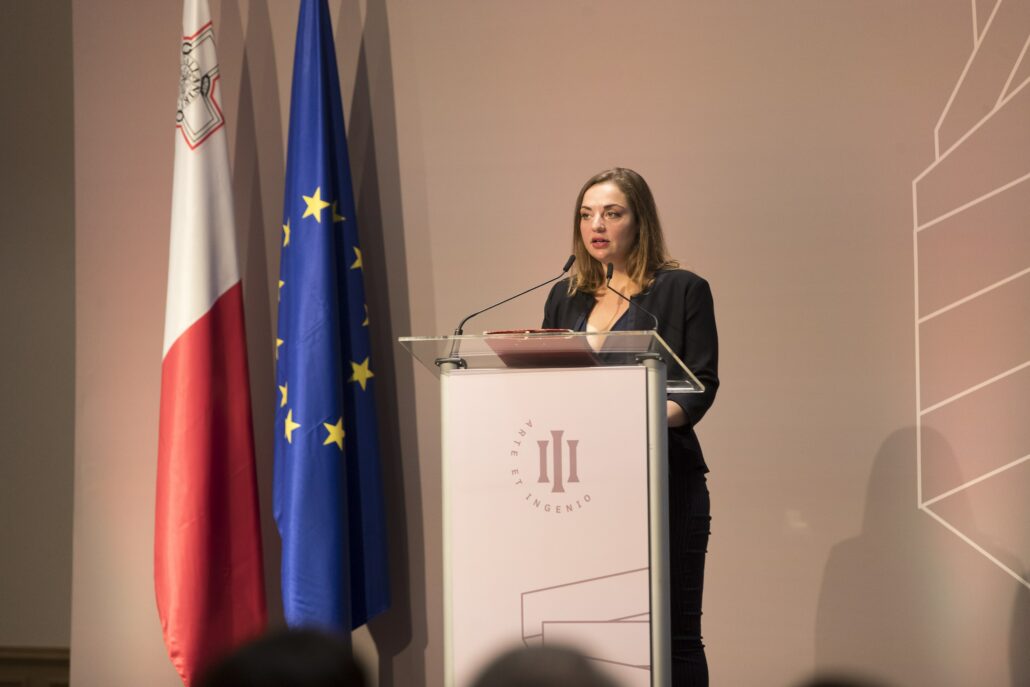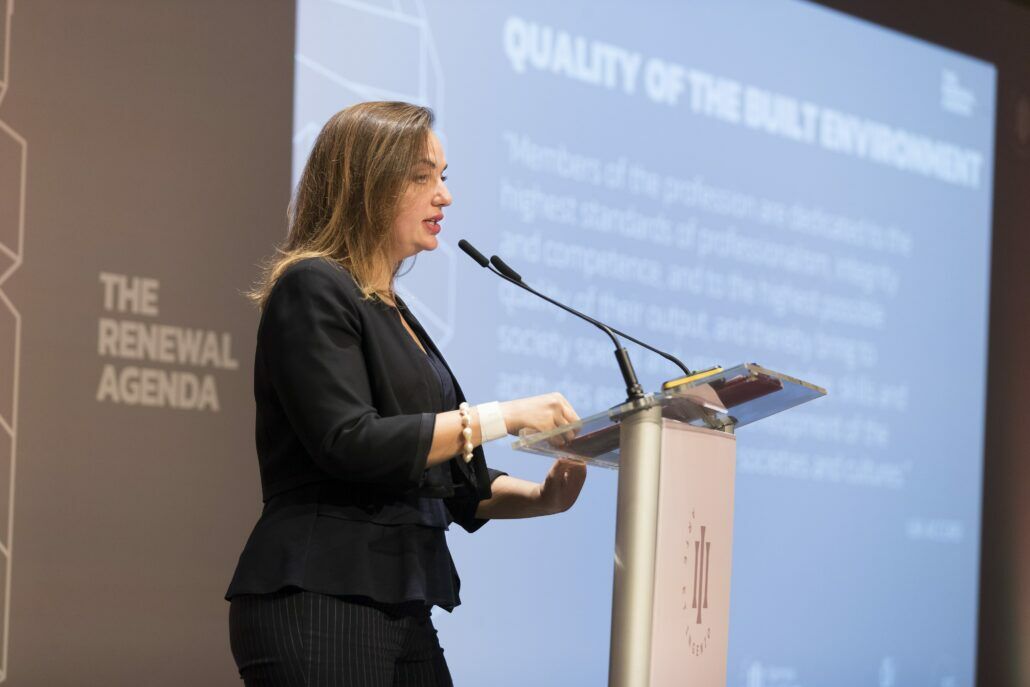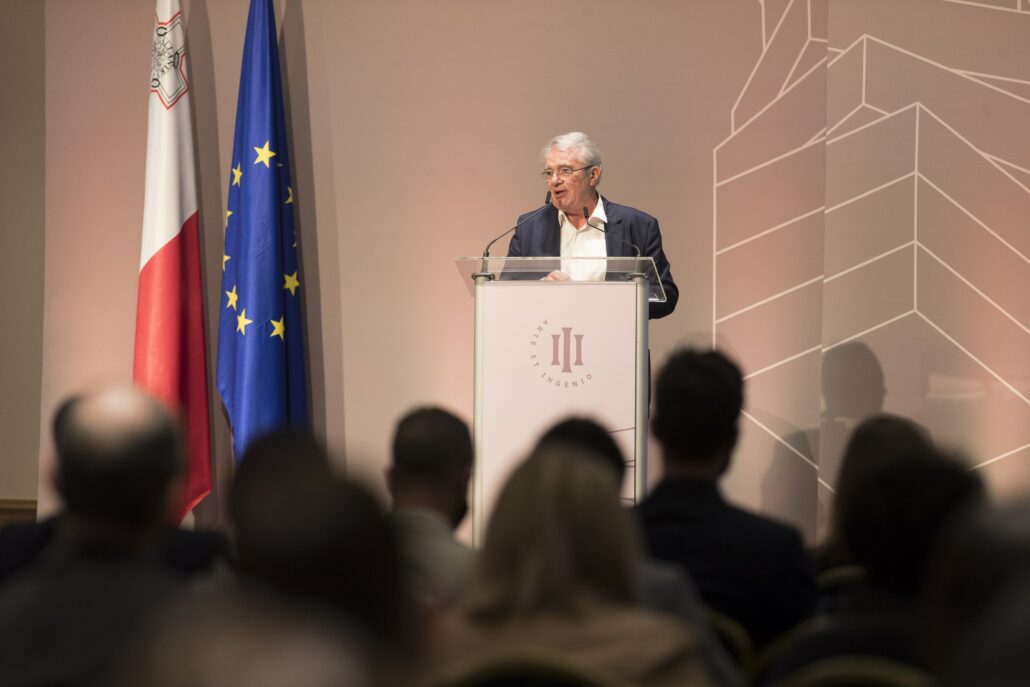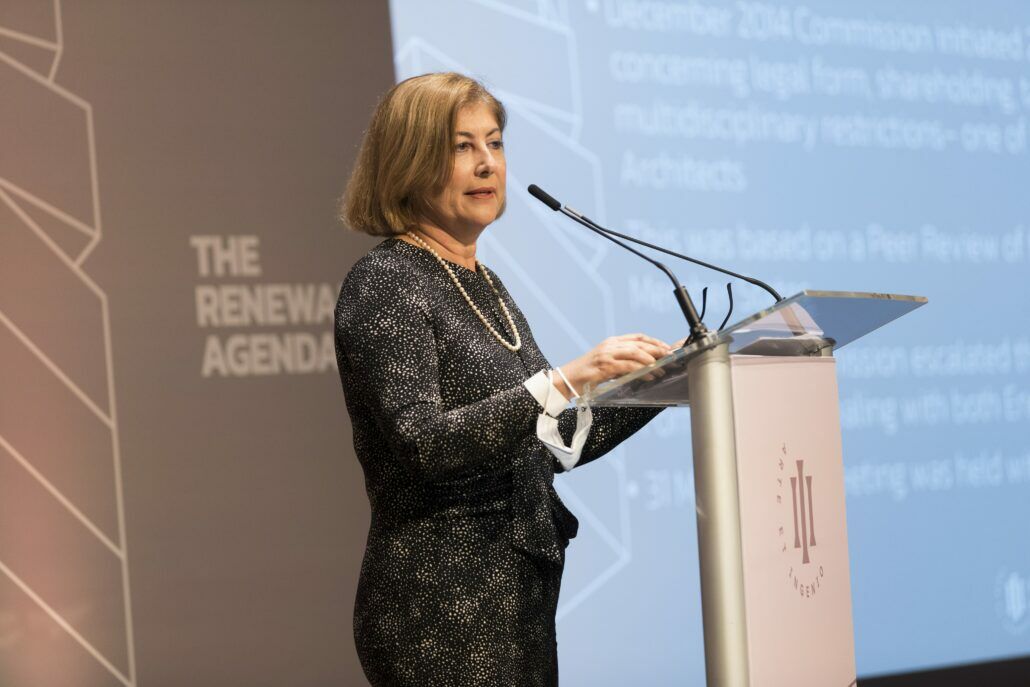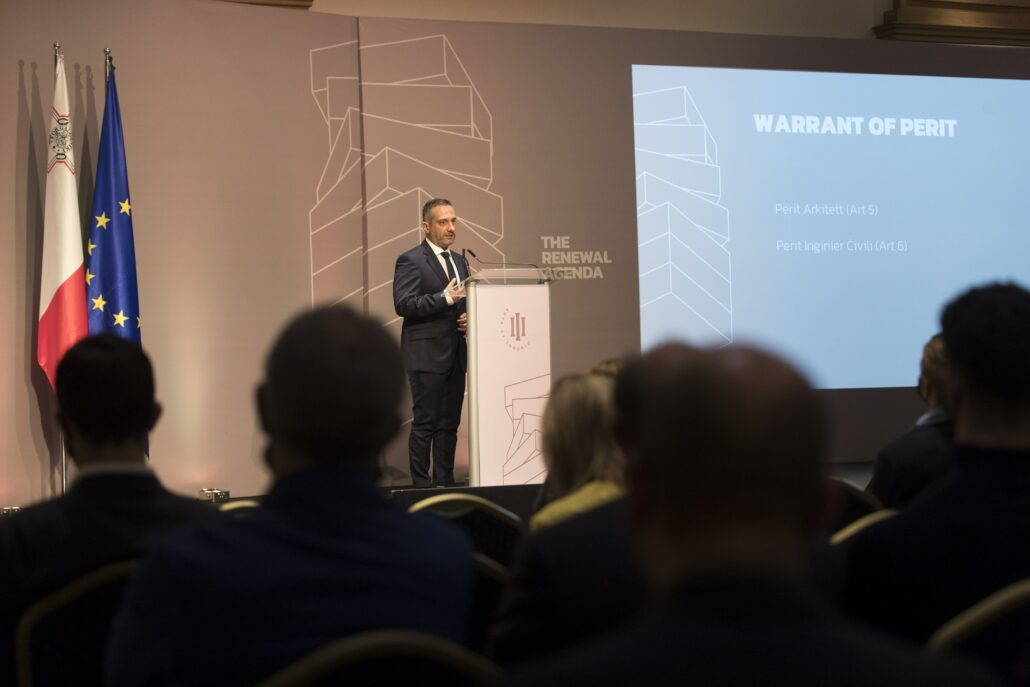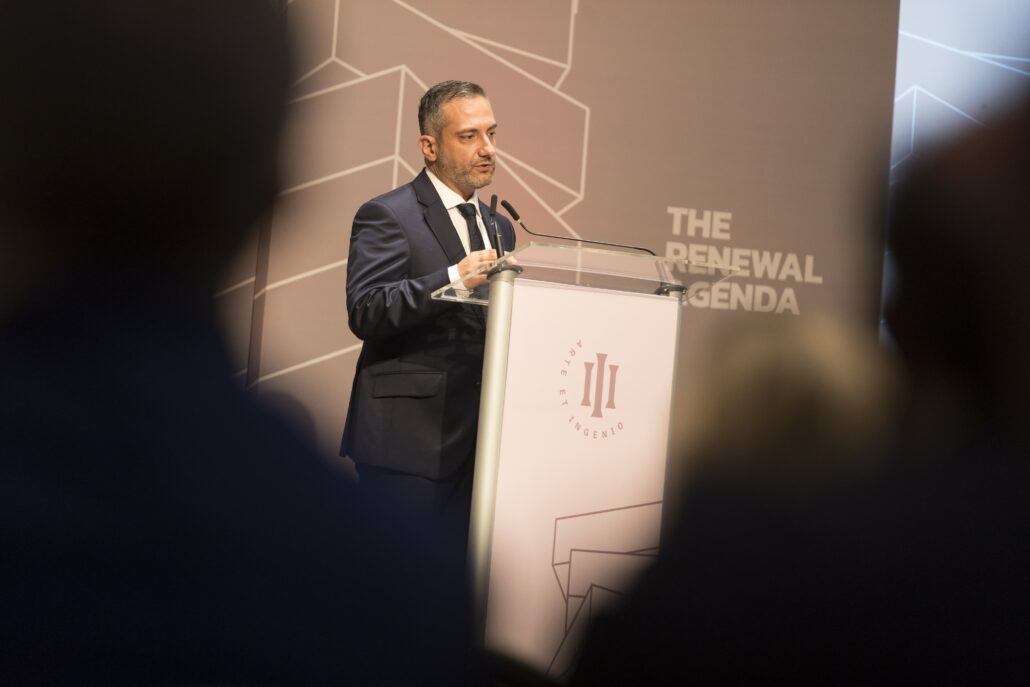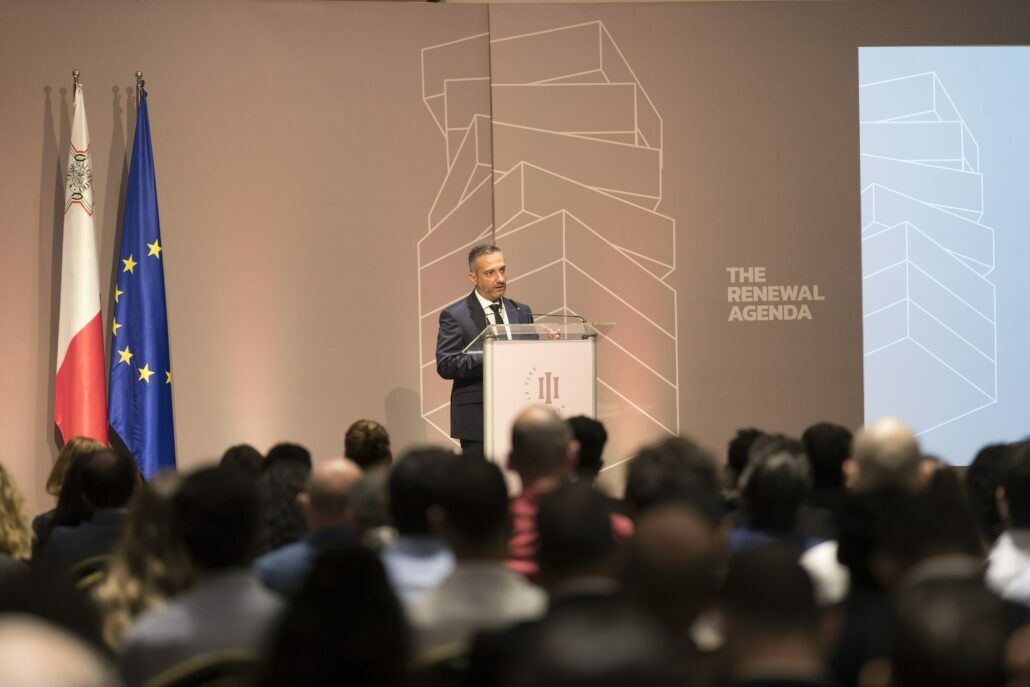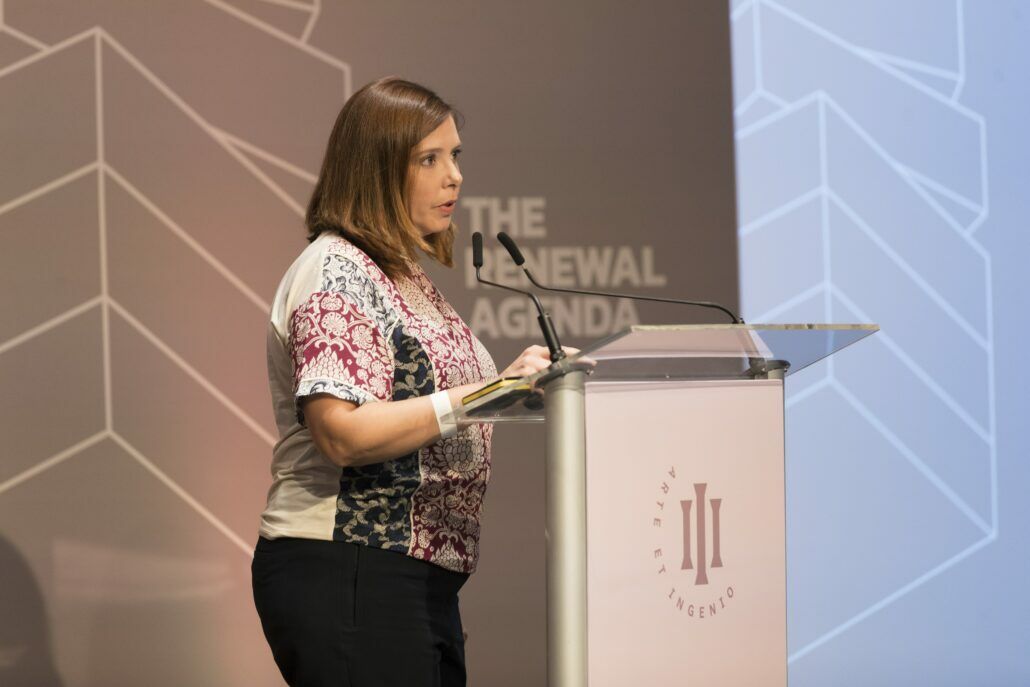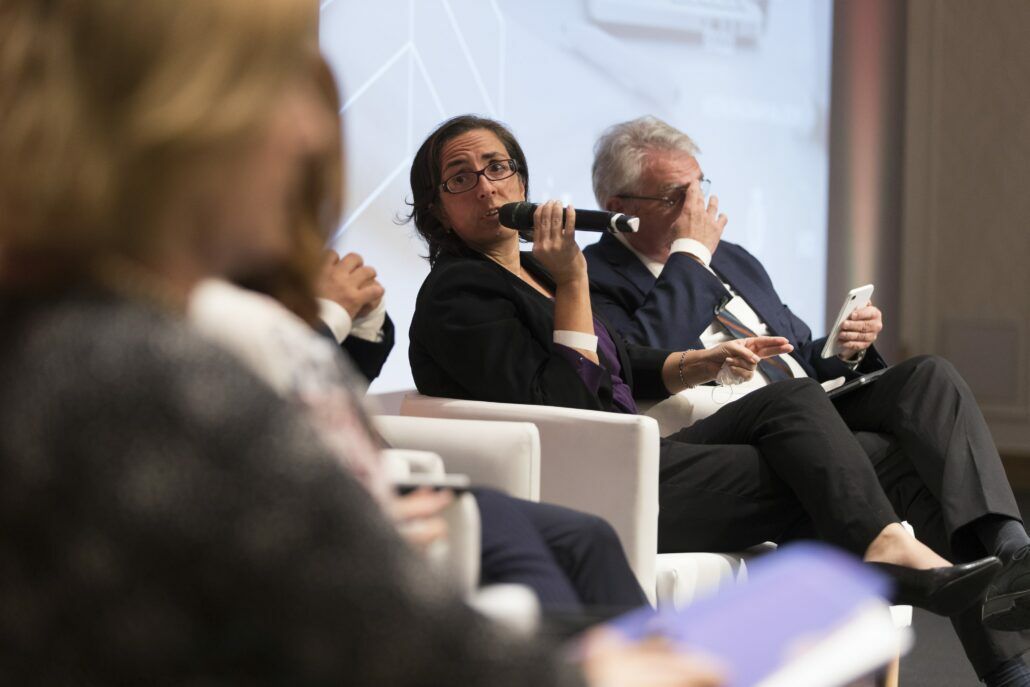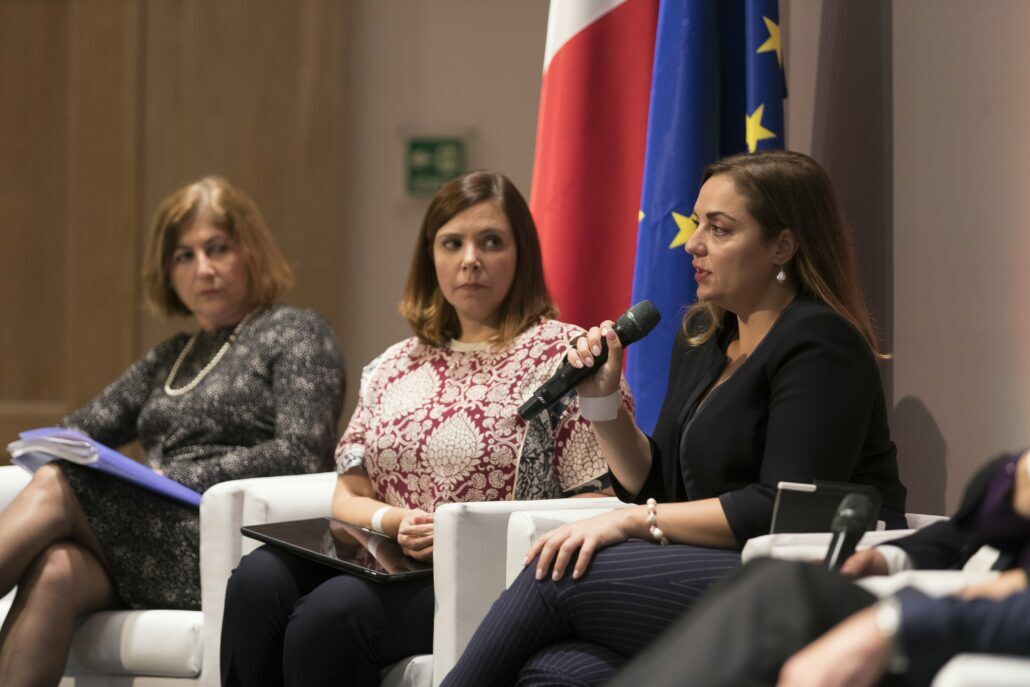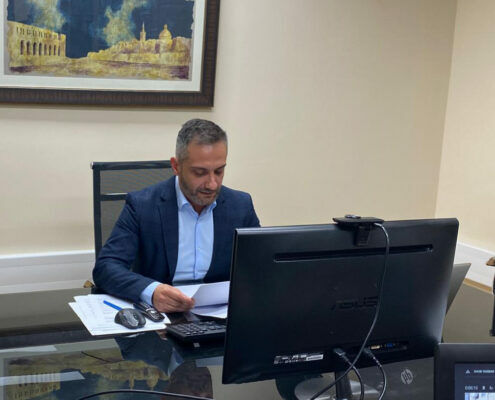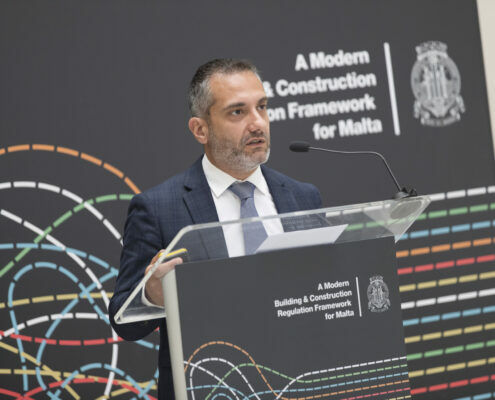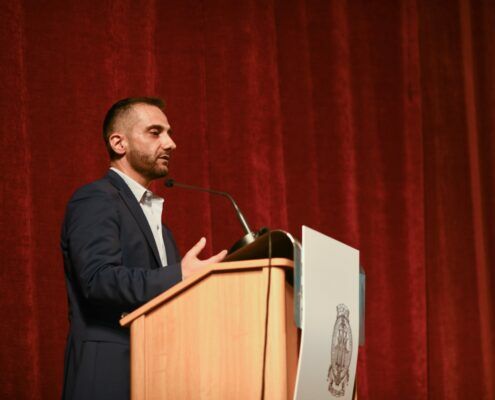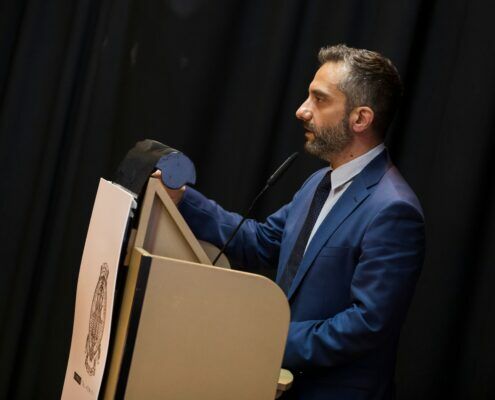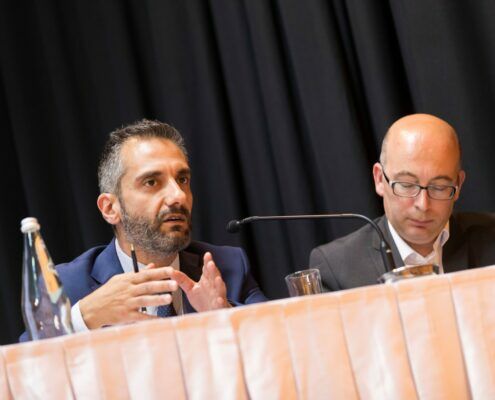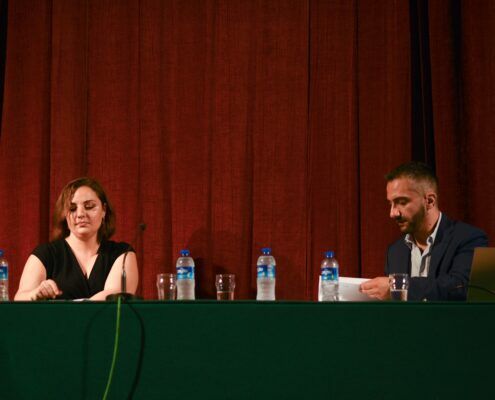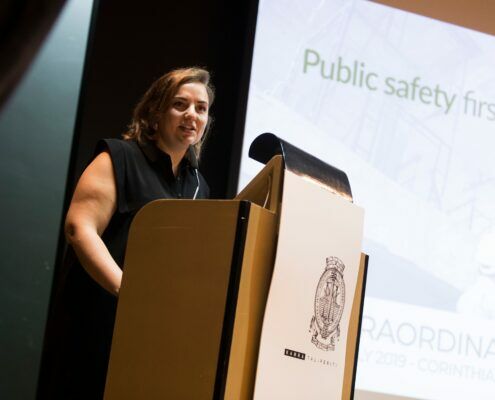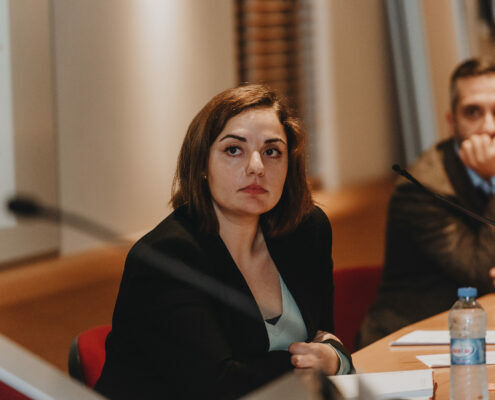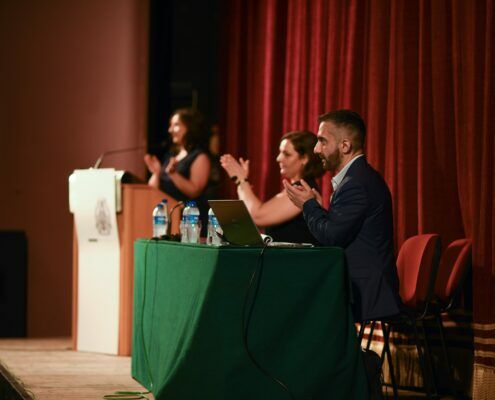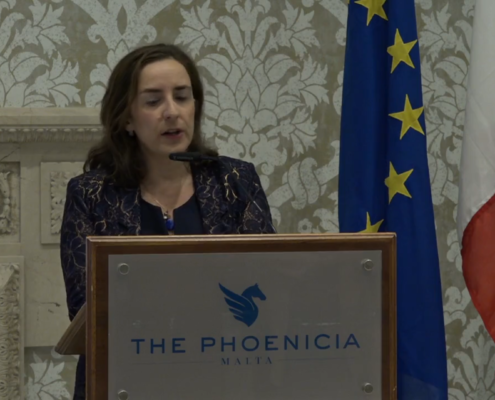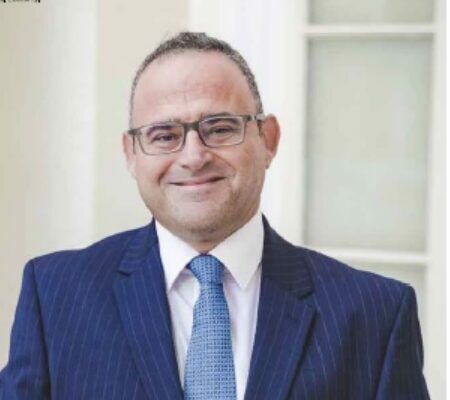Posts
PR 08/21 | Periti Act to initiate modernisation of the profession
Verżjoni bil-Malti
On Friday, the Kamra tal-Periti, in collaboration with the Ministry for Transport, Infrastructure and Capital Projects and SACES, organised a conference entitled The Renewal Agenda: Modernisation of the Profession. The event follows the unanimous approval by Parliament, earlier this year, of the new Periti Act: a historic milestone that marks the culmination of a 14 year-long wait.
The Council and the Ministry have now concluded the first tranche of subsidiary legislation necessary to bring several provisions of the act into force, and the transition from the old to the new Periti Act will begin in the coming weeks. This will initiate a long-awaited process of renewal of the profession, with far-reaching effects that will change the way it is structured, as well as the role of the Kamra, the way warrants are conferred, and new obligations on Periti.
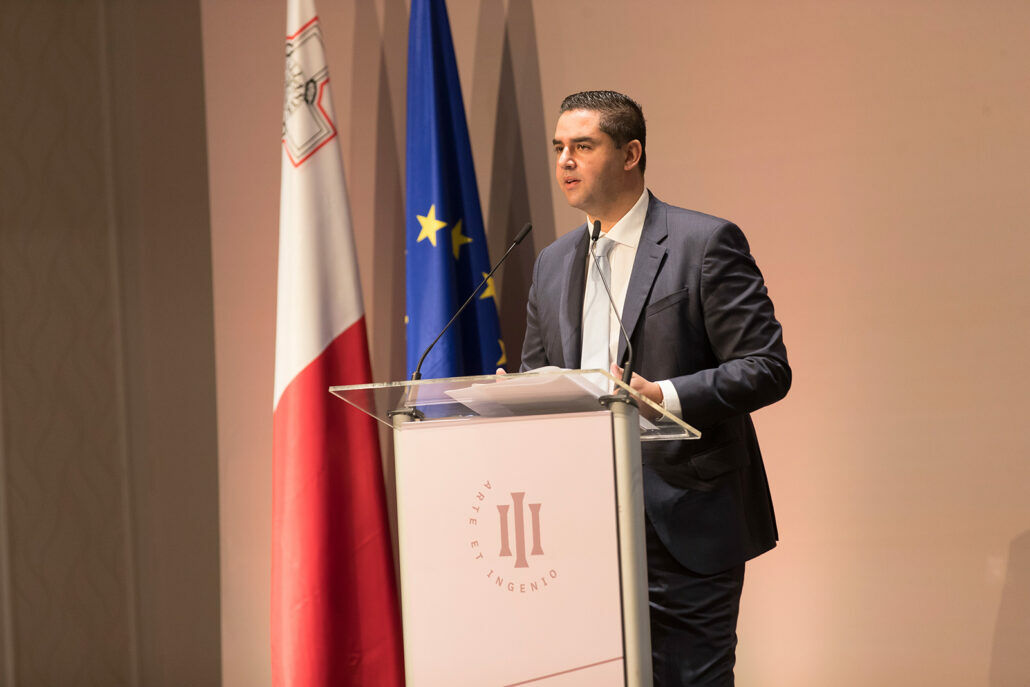
Dr Ian Borg, Minister for Transport, Infrastructure and Capital Projects, outlined the importance of the new Periti Act, which was the result of intense hard work and perseverance, and how it will facilitate the modernisation of the profession for the benefit of the public.
“We introduced provisions that give a broader sense of legal certainty, accountability, security and transparency in the building and construction industry,” Minister Borg said.
He also emphasised how the new Act is underpinned by the value of striving for quality. “It was time to raise the bar even higher and through the amendments made in the new Act we are promising a more qualitative profession with the highest skilled people.”
The subsidiary legislation, which will be brought into effect in the coming weeks, will bring Malta in line with European Directives concerning the performance of the service of architects and civil engineers in Member States. One of the main benefits of this is that the local professional will become recognised on the same level as European counterparts.
Minister Borg concluded his address by announcing that his Ministry is in advanced talks with the Kamra to allocate funds to build a new digital platform whereby new procedures that will be in place in the coming months can be carried out efficiently and securely. He also pledged his commitment to continue supporting the Kamra and the profession to improve the quality of the built environment and meet the ambitious goals that Government has set regarding the environment and climate change, in achieving which periti will play a crucial role.
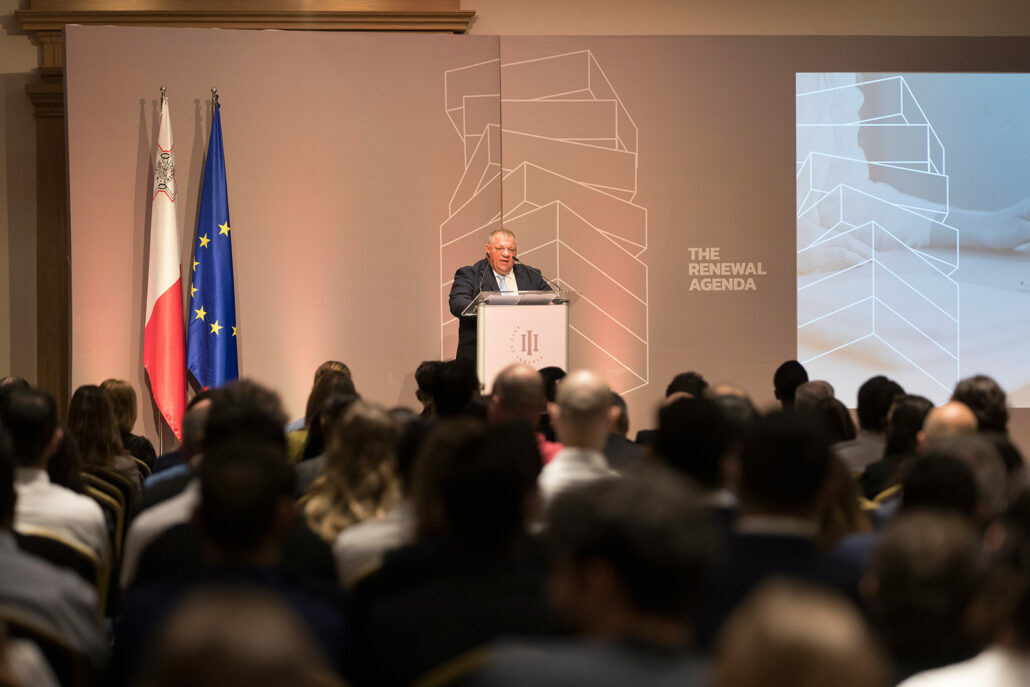
Perit Toni Bezzina, Opposition Spokesperson for Transport and Infrastructure, emphasised the bipartisan nature of the Parliamentary process leading to the approval of the new Periti Act. “We should be truly proud of the political maturity we have displayed in reaching this important milestone,” Bezzina remarked.
Bezzina pointed at the strengthening of the role of the Kamra tal-Periti which, for the past century, has given the highest level of service to the Maltese population. Bezzina went on to state that with the increased responsibility of the Kamra tal-Periti, it can no longer function on a voluntary basis.
“The Opposition recognises the new roles the Kamra was conferred in the law and will thus be ensuring that the Kamra has all the necessary resources to fulfil its new regulatory functions for the benefit of the profession itself, but also for the benefit of all Maltese citizens.”
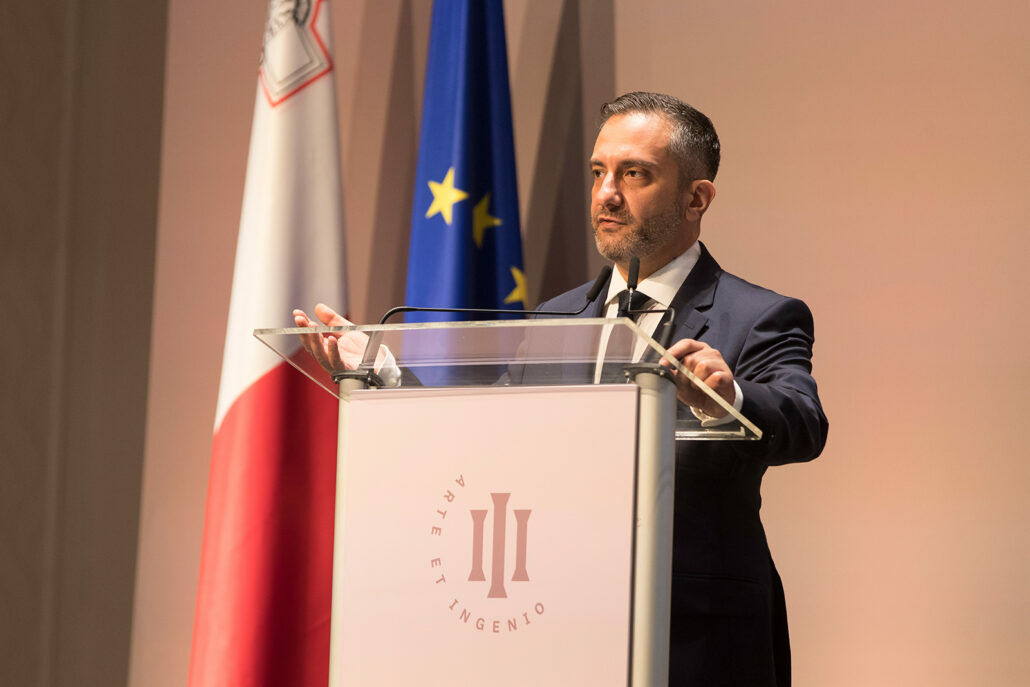
In his welcome address, KTP President Perit Andre Pizzuto stated that the need for the renewal of the profession, the construction industry and Malta’s built environment has long been the focus of the Kamra, albeit largely ignored.
He welcomed the fact that political leaders are recognising the need to address the concerns that are adversely affecting quality of life, such as the erosion of the quality of our built environment, the loss of our cultural heritage, the need to introduce proper building and construction regulations, and the need to protect our environment.
Pizzuto explained that renewal is a process that requires a plan with a sequence of coordinated initiatives whose overarching objective keeps in focus the betterment of the profession, the industry and our built environment.
“The Kamra’s renewal agenda begins with the modernisation of the profession,” he remarked.
Pizzuto stated that the Kamra too needed to modernise, not just because of the legislative changes that are being brought about, but also to reflect the values that embody the profession today, while remaining mindful of its legacy.
To mark the beginning of the renewal process, Pizzuto unveiled the Kamra’s new brand identity.
“The Kamra’s new identity, featuring the three pillars of sustainability, reflects the social and cultural aspirations of today, and will serve as a constant reminder for the profession of its responsibility to promote sustainable development that strikes a balance between the economic, social and environmental needs of the country by harnessing and employing its creative and technical competences,” Pizzuto concluded.
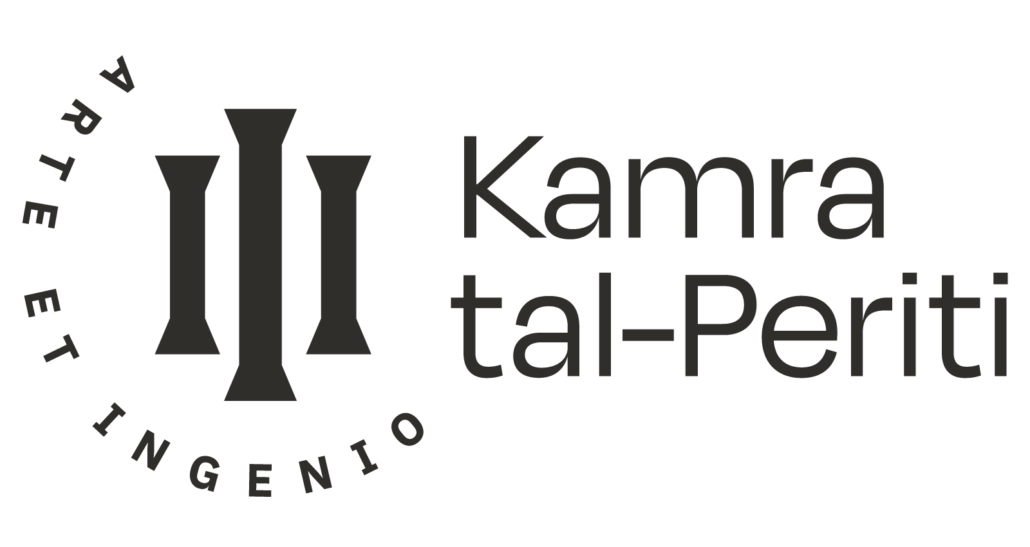
Later in the conference, Pizzuto provided an in-depth review of the changes that will be brought into force with the first tranche of subsidiary legislation.
Presentations on the context that gave rise to the need for the new Act were given by Perit Simone Vella Lenicker, Past President KTP, Prof Alex Torpiano, Dean of the Faculty for the Built Environment, and Ms Lucienne Meilak, Director of the Policy Development and Programme Implementation Directorate at MTIP, who played a key role in the drafting and approval of the Act.
Perit Dr Amber Wismayer, Vice President and Hon. Secretary, KTP, and Perit Dr Jeanette Muñoz Abela, Council Member, KTP, also gave interventions on specific innovations of the Act.
PR 07/21 | Perit Dr Jeanette Muñoz Abela elected to European Council of Civil Engineers Executive Board
Perit Dr Jeanette Muñoz Abela was elected to the Executive Board of the European Council of Civil Engineers at the 73rd ECCE General Meeting held on 23rd October 2021.
Dr Muñoz Abela serves as council member of the Kamra tal-Periti (KTP) since 2016 where she acts as its representative on the European Council of Civil Engineers (ECCE), Fédération Européenne d’Associations Nationales d’Ingénieurs (FEANI) and Inġiniera Malta in their General Assemblies as well as a member of the Union Internationale des Architects (UIA) Committee “International Women in Architecture”.
She was also appointed as the Chair of the Permanent Committee on Engineering of the Kamra tal-Periti and is the national representative of the International Association of Bridge and Structural Engineering (IABSE).
Dr Muñoz Abela is also a lecturer at the University of Malta within the Faculty for the Built Environment and sits on the University Senate (2019-2021), the Faculty Board (2019 – to date) and the Doctoral Committee (2019 – to date).
The Kamra tal-Periti warmly congratulates Dr Jeanette Muñoz Abela on her achievement.
The Kamra tal-Periti would also like to congratulate Dipl. Ing Andreas Brandner on becoming the new president of the European Council of Civil Engineers while expressing thanks and appreciation to Ing. Aris Chatzidakis for his work during the last three years.
The new ECCE Executive Board is composed as follows:
| Andreas Brandner | President | Austria |
| Aris Chatzidakis | Immediate Past President | Greece |
| Platonas Stylianou | Vice President / President Elect | Cyprus |
| Helena Endriksone | Vice President / Treasurer | Latvia |
| Paul Coughlan | Executive Board Member | U.K. |
| Jeanette Muñoz Abela | Executive Board Member | Malta |
| Olga Radulovic | Executive Board Member | Montenegro |
| Dimitar Natchev | Executive Board Member | Bulgaria |
PR 06/21 | Human decency before profit
The construction industry has hit yet another low today should reports carried in the local press be confirmed regarding an as-yet unnamed contractor having unceremoniously dumped a seriously injured worker on the side of a deserted road.
As we discuss ambitious climate change targets, low carbon strategy, and the New Bauhaus Initiative, this incident is a stark reminder that some industry operators are yet to reach basic levels of responsible behaviour grounded in humanity and compassion.
Until contractors are required to possess a licence to operate, which among other things would ensure that they adhere to construction regulations and provide lawful employment, we will never make the quality leap we require. With a licensing regime finally in place, it would be expected that such a contractor would lose said licence and would be unable to operate again should such allegations be confirmed.
The Kamra tal-Periti is aware that the discussion on draft regulations on the licensing of contractors are scheduled to resume at BICC shortly, after having been on hold since May 2019. The Kamra shall be insisting that the new licensing regulations include provisions sanctioning or barring any contractors who were found to be responsible for serious injury or the loss of life of their workmen or neighbours through negligence prior to their coming into force.
The industry must send a strong signal to “cowboy” operators that all its main stakeholders shall adopt a zero-tolerance policy towards behaviour which is inhumane, exploitative, and negligent to its labour force.
PR 05/21 | The revocation of warrants on criminal conviction and the role of the Kamra tal-Periti
Following the reading of Magistrate Mifsud’s sentence regarding the role of Perit Roderick Camilleri and Perit Anthony Mangion in the tragic death of Miriam Pace, it is pertinent to inform the public about relevant aspects of the law and the role of the Kamra tal-Periti in this regard.
Suspension or Revocation of Warrants and Memberships
The most frequent question that the Kamra is receiving from media houses is whether the convicted periti are members of the Kamra and, if so, whether it intends suspending their membership. There are a number of points that need to be clarified for the benefit of the public on this point:
1. The Kamra is not an association, a club or a union for architects and civil engineers. It is set up by Law as a regulating body of the profession and to act as an official consultant to the State on matters related to the industry.
2. All members of the profession form part of the Kamra tal-Periti automatically, are subject to its disciplinary procedures, and are obliged to follow its directives and code of conduct.
3. Expulsion from the Kamra would entail expulsion from the profession. Such an expulsion can only happen following the suspension or revocation of a perit’s warrant in accordance with the law. It is indeed the Council’s role to investigate any misconduct of periti and to establish adequate disciplinary measures that may be necessary to protect the public and the reputation of the profession. With the passing of the new Periti Act, the Council will also have the power, after carrying out an investigation, to delegate the conduct of the disciplinary hearings to a Periti Professional Conduct Board.
4. Any disciplinary decision of the Council of the Kamra can be appealed before the Court of Appeal, and thus the Council acts as a quasi-judicial body. In this respect, the Council is obliged to adhere to the principles of natural justice enshrined in the Constitution. These include the right to a fair hearing. Failure to abide by these principles would invalidate any disciplinary decision of the Kamra tal-Periti on appeal.
5. To ensure a fair hearing, the Kamra cannot pronounce itself publicly on the merits of a case until its disciplinary proceedings are finalised. If it does, it would prejudice the relative conduct proceedings.
6. It is also pertinent to point out that a perit can lose his or her warrant in one of two ways:
- Through a decision of the Council, and eventually of the Professional Conduct Board; or
- Through a criminal conviction with a prison term of at least one year, even if suspended.
In the latter case, the revocation would be automatic and would not require a specific pronouncement on this point in the judgement.
The role of the Periti Warranting Board is to execute the Council’s or the Court’s decision, as applicable, and has no discretionary powers on these matters.
7. One of the principles of natural justice is non bis in idem; i.e., no legal action can be instituted twice for the same cause of action. In view of this, the Council was unable to proceed with its investigation given that the specific charges were not made known to the Kamra until today.
8. In March 2021, the Court had denied the Kamra’s request to be granted special access to the magisterial inquiry to extract any relevant information for its disciplinary investigation.
9. The Kamra cannot take any ulterior disciplinary measures on points already decided upon by the Criminal Court, as confirmed by its legal consultants and the Office of the Attorney General.
What happens next?
The two investigations which had been hitherto suspended due to the criminal proceedings, will be reopened by the Council to determine the following points:
- Establish whether the prosecution or the convicted parties will file an appeal against the judgement. If so, the Council will need to await its outcome and proceed accordingly;
- Analyse the charges and judgement to establish whether there are any disciplinary merits not covered by the criminal case, including breach of the code of conduct, breach of a directive of the Kamra, professional misconduct or negligence, and bringing the profession into disrepute.
Beyond the merits of the criminal and disciplinary proceedings, the testimony brought before the Criminal Court, particularly that of the Court-appointed experts, has exposed serious flaws within the regulation of the industry that need to be addressed in earnest and with competence. The Kamra shall also continue monitoring the criminal proceedings instituted against the contractor and the worker involved to determine whether they bring to the fore any further systemic failures within the existing chaotic regulatory framework governing the industry.
The Kamra has been campaigning on the need for reforms for several years, and has indeed published its own detailed proposals for reform in May 2019 in line with its legal and moral obligations to advise the State on how best to safeguard the public interest.
More recently, it launched a public consultation on its redraft of the infamous Legal Notice 136 of 2019, which was heavily criticised during the criminal proceedings, and shall shortly be publishing the final amended version having taken on board the feedback it received.
PR 03/21 | KTP welcomes the passing of the Periti Act and BCA Act by Parliament
The Kamra tal-Periti is deeply satisfied that after an interminable struggle lasting fourteen years and spanning five administrations, the law regulating the profession of periti has been unanimously approved in Parliament yesterday evening.
The new Periti Act will allow for a long-overdue modernisation of the profession and the strengthening of the Kamra’s role in regulating the profession.
One of the main the changes the new Act will bring about is the introduction of Certificates to Practise issued annually by the Kamra to warrant holders providing services to the public and therefore carrying liability for their services. The issuance of Certificates to Practise will be conditional to warrant holders possessing professional indemnity insurance or another form of adequate protective cover and minimum continuous professional development training. The possessors of the Certificate to Practise, whether in the private or public sector, will also be issued with an official professional stamp as a mark of recognition for their clients, and public and private institutions receiving official documentation from periti. This reform will serve to raise the bar and professionalism of warrant holders to the benefit of the wider public and the profession itself.
Another key change is the introduction of two lists within the warrant of Periti – the Perit Arkitett and Periti Inġiniera Ċivili. Apart from addressing infringement procedures opened by the European Commission against Malta about the previous Periti Act, this innovation creates a distinction between the professional qualification routes for architects and civil engineers and marks the beginning of a transition from generalists to specialists in various fields of practice. This distinction is expected to greatly benefit the quality of our built environment and the quality of construction.
Of great importance to the Kamra, of course, is the consolidation of the Kamra’s role as the regulator and sole representative body of periti in Malta. It also introduces the Periti Professional Conduct Board, a new body to which professional conduct cases can be delegated by the Council of the Kamra to improve its efficiency and guarantee a speedier due process for all parties concerned.
This Act was passed during the Kamra’s centenary year. It was indeed just over a hundred years ago, as the country was exiting another pandemic, that the Kamra was set up following a spate of building collapses. The Kamra has evolved over the past one hundred years but remains a widely trusted and respected institution that not only looks after the interests of the profession but also seeks to protect the common good in all its efforts.
With the passing of this Act, the Kamra is now in a position to gradually begin rolling out long-overdue reforms within the profession that depended on the new Periti Act. These reforms will bring the profession firmly into the 21st Century. It will also help begin to address the serious problems within the construction industry and our built environment.
The Kamra tal-Periti also strongly welcomes the concurrent passing of the Building and Construction Authority Act. While the Periti Act and the Kamra tal-Periti will serve to underpin the reform of the building and construction industry, this new authority will serve as its foundation.
Most of the concerns raised by the Kamra in recent weeks about the Bill have been addressed in Parliament through amendments brought forward by Government and Opposition.
There is still a significant amount of work to be done to align Malta’s building and construction industry with that of our European partners. However, the Kamra remains resolved to support Government in the drafting of regulations and their implementation to ensure that the public’s health and safety and quality of life are not only protected but enhanced.
PR 11/20 | Perit André Pizzuto elected President of the Kamra tal-Periti
The Kamra tal-Periti held its Annual General Meeting on the 10th December 2020, the day after the Periti Act was moved to second reading in Parliament. Outgoing President, Perit Simone Vella Lenicker, welcomed this important milestone during the Kamra’s first virtual AGM, and highlighted the strong ties between this legislation and the challenges faced by the profession and the building industry. She also reported ongoing divergence on pertinent aspects of the Bill on two crucial aspects relating to (1) the alignment of the liability period with European averages and with insurance products available on the market, and (2) the appointment of the Board of Professional Conduct. The Kamra was satisfied that the Bill had generally reflected the direction laid down in previous General Meetings and now augurs that it can achieve full agreement with the lawmakers on these outstanding matters in the interest of the profession and the industry.
The General Meeting approved two motions reiterating its position on the Periti Act and the Building and Construction Regulations Framework, and entrusting the Council of the Kamra to ensure that decisions approved during previous Meetings are implemented. The first motion related to the pending divergences highlighted above. The second related to the Building and Construction Regulation Framework and the AGM once again entrusted the Council to ensure that Government honours its written commitments made in August 2019 regarding the implementation of the necessary legislative and administrative changes.
Perit André Pizzuto was endorsed as President through a unanimous vote. He has contributed to the Kamra for the past 6 years, spearheading the publication of A Modern Building and Construction Regulation Framework for Malta, as well as the setting up of the Emanuele Luigi Galizia Awards. In his address, he spoke of three main aspects that will characterise his term, namely: the strengthening of the Kamra as an organisation capable of generating resources and delivering services to its members; renewed efforts to restructure the industry and its legal framework; and eagerness to modernise the profession so it can rise to the challenges posed by climate change, digitalisation of design and information modelling, and emerging construction technologies.
Perit Andre Pizzuto addressing virtual Annual General Meeting

Dr Amber Wismayer was elected as Vice President. She has held the role of Honorary Secretary of the Kamra since 2013, a role she will retain until end-2021.
Dr Amber Wismayer
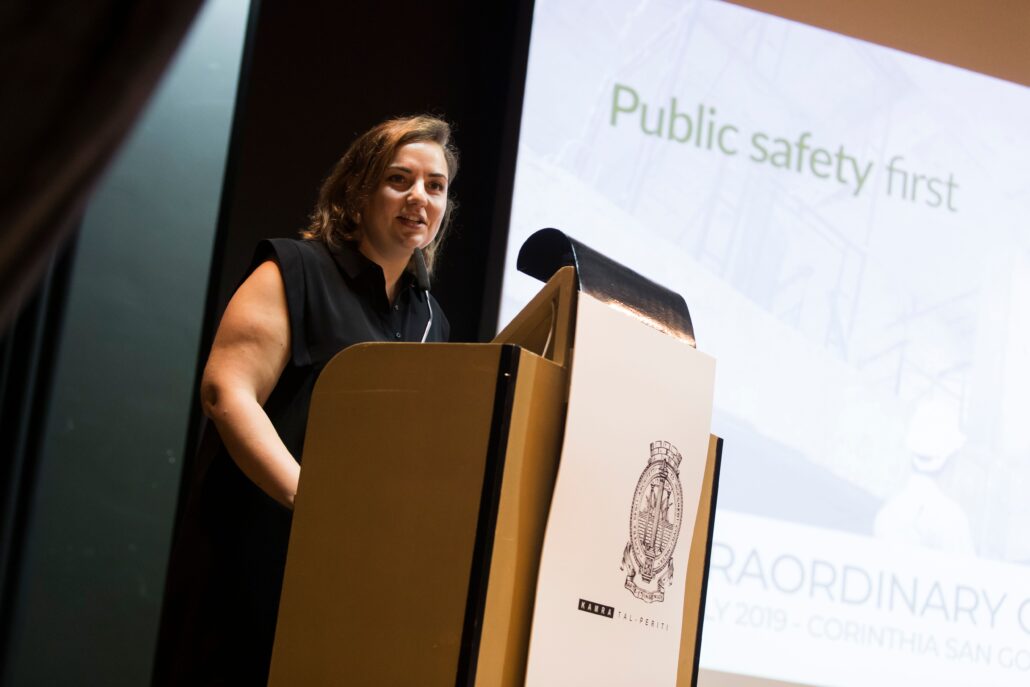
The AGM elected two new Council members, Perit Matias Camilleri De Marco and Perit Adrian Mangion, and confirmed two incumbents Perit Dr Jeanette Muñoz Abela and Perit Anthony Bezzina.
Perit Matias Camilleri de Marco

Perit Adrian Mangion

The appointment of Kevin J. Borg as Managing Director of the Kamra tal-Periti was also announced during the General Meeting. He has been tasked with the implementation of a detailed and holistic three-year Business Plan which was approved by the Council earlier this year.
Kevin J. Borg

Events
Nothing Found
Sorry, no posts matched your criteria
Affiliations
The Kamra tal-Periti is affiliated with the Architects' Council of Europe (ACE), European Council of Civil Engineers (ECCE), Union International des Architects (UIA), Union of Mediterranean Architects (UMAR), Commonwealth Architects Association (CAA), and the Malta Federation of Professional Associations (MFPA).
Contact Us
Kamra tal-Periti
52, Triq San Pawl
Il-Belt Valletta VLT1212
Malta
+356 2131 4265
info@kamratalperiti.org
Office Opening Hours
Mon-Fri: 8:00am - 11:00am



